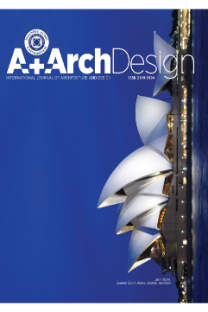Explorations on “Chora”
The Ancient Attic Greek word Chora, which is translated as space or place, has been one of the tropes used by philosophers and architects alike during the end of the twentieth century. Chora, for example, has been one of the privileged deconstructivist terms used by Jacques Derrida as well as Elisabeth Grozs. It has also been one of the key terms used by architectural historian Alberto PerezGomez who is well known as an architectural theorist and a promoter of a phenomenological approach to architecture. It is rather intriguing that these different approaches to architecture and architectural meaning both use the notion of Chora which relates to the critical issue of space versus place. Although the notions of space and place have been explored extensively within architectural discourse as one of the keys to architectural meaning, they are not the focus of this research. This study rather is an exploration of the notion of Chora through examining its interpratations by different characters. The aim is to explore possible paths that could open themselves for us to understand architecture and architectural meaning.
Keywords:
Chora, space/place, Derrida Grosz,
___
- [1] Greek-English Lexicon, 1968. Compiled by Henry George Liddell and Robert Scott. Oxford: Clarendon Press. [2] Derida, J. ,1997. “CHORA, ” in Chora L Works. Ed. by Jeffrey K'pn's and Thomas Leeser. New York: The Monticelli Press, 1997: p.15-32. [3] Grosz, E., 1995. “Women, Chora, Dwelling,” in Post Modern Cities and Space, ed. Sophie Watson and Katherine Gibson. Oxford, UK. [4] Perez-Gomez, A., 1995. “Chora as Architectural Meaning: The Space in-Between and Its Disappearance in Instrumental Representation, ” in Intersight, Journal of the School of Architecture and Planning, State University of New York. Buffalo, 3, 1995: p.15-31 [5] Perez-Gomez, A. Purcell, S., 1998. Chora 1_ Intervals in the Philosophy of Architecture. Mcgill Queens Univ Press. [6] McEven, I. K., 1998. Socrates’s Ancestor: An Essay on Architectural Beginnings. Cambridge, Massachusetts: The MIT Press. [7] Plato, 1998. Timaeus, 47e3-52d 1, as translated to English by Harry A. Ide for the Ancient Philosophy Course Pack, University of Nebraska-Lincoln, p.60-62 (not-published). [8] Kipnis, J. & Leeser (eds), T. 1997. Chora L Works. New York: The Monticelli Press. [9] Routledge Encyclopedia of Philosophy, 1998. General Ed. Edward Craig. London, New York: Routledge. [10] Güney, Y.I., 2004. “Chora: The Allure and Its Pitfalls” in Proceedings of the 35th Annual Conference of the Environmental Design Research Association, EDRA 35 Design With Spirit, Dwight Miller; James A Wise (Eds.) Albuquerque, New Mexico, June 2-6, 2004: p.212. [11] Plato, 2000. Timaeus, (trans.) Donald J.Z. Indianapolis: Hacket Publishing. [12] Barnes, J. 1987. (Eds) Early Greek Philosophy. Penguin Books.
- ISSN: 2149-5904
- Başlangıç: 2015
- Yayıncı: İstanbul Aydın Üniversitesi
Sayıdaki Diğer Makaleler
Traces of Religion-Focused Spatial Development in Ayvalık, a Coastal Town
Gülşen ÖZAYDIN, Müge ÖZKAN ÖZBEK, Levent ÖZAYDIN, Eser YAĞCI
Analyzing the Residential Energy Efficiency Concept through Systemic Feedback Approach
Dilara GÖKÇEN ÜNER, Ayşegül TANRIVERDİ KAYA
Gülşen ÖZAYDIN, Müge ÖZKAN ÖZBEK, Levent ÖZAYDIN, Eser YAĞCI
